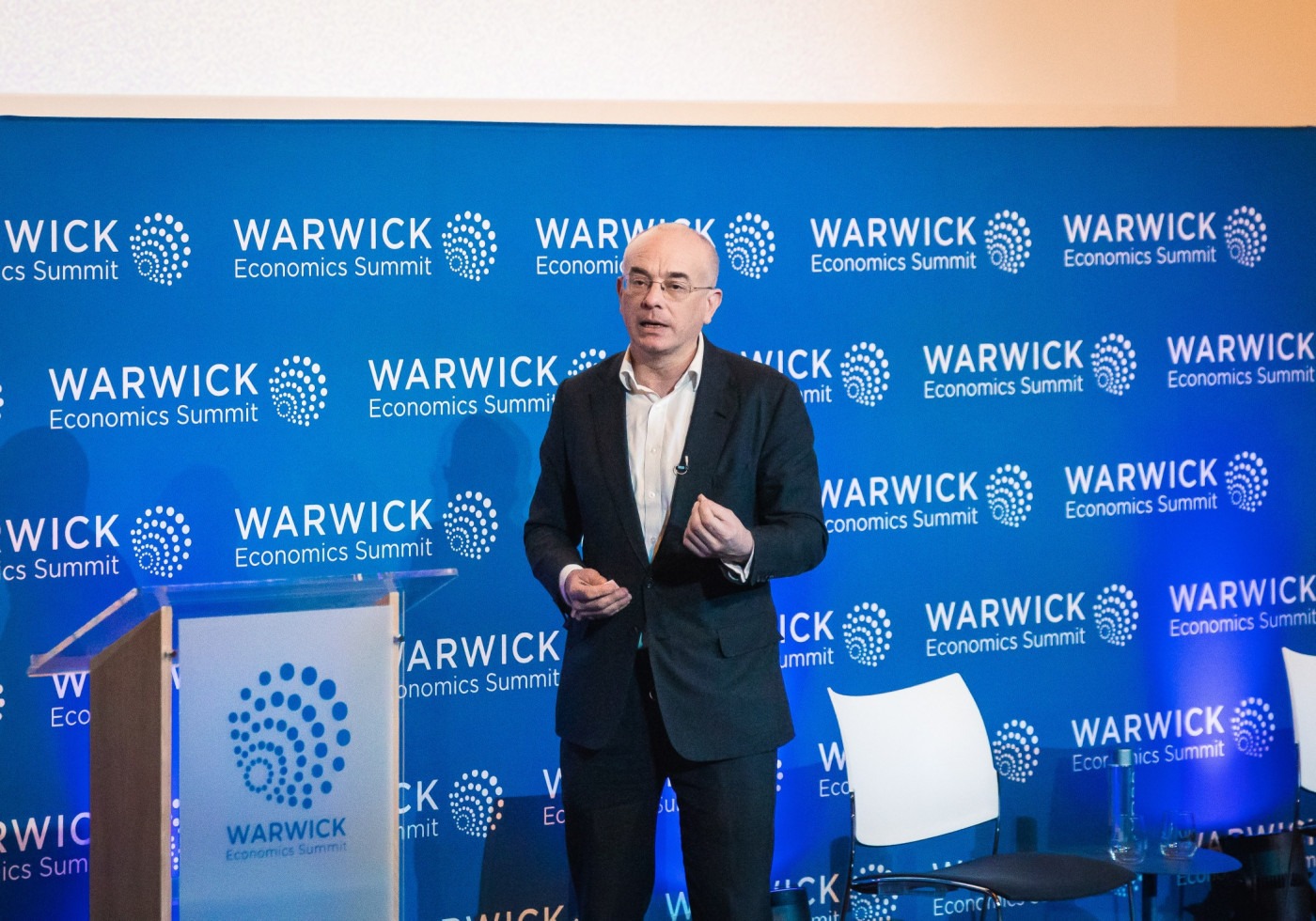WES 2025: UBS economist Paul Donovan bashes ‘prejudice politics’
In a keynote at this year’s edition of the Warwick Economics Summit, Paul Donovan discussed the negative economic implications of social prejudice.
Donovan, Chief Economist at UBS Global Wealth Management, kicked off his speech by discussing contemporary economic trends. He remarked that humanity is “embarking on … the fourth industrial revolution”, where AI, social media, and a range of other technological advancements are having a “profound” impact on the globe.
Subsequently, Donovan highlighted the unique nature of the ‘fourth industrial revolution’. Unlike previous ones, “the technology does not matter”. Instead, what counts is how people use it.
However, much like past technological revolutions, the ‘fourth industrial revolution’ will likely cause widespread loss of economic security and social status. This “makes people scared”, leading many to seek out explanations for this destabilisation. As “people crave simplicity”, per Donovan, they often resort to scapegoating marginalised groups to explain their downward mobility.
This “scapegoat economics” and “prejudice politics”, as Donovan labelled it, is nothing new. Past industrial revolutions, he suggested, have been associated with various bigotries, whether it be antisemitism or the targeting of Catholics and Presbyterians. In our present paradigm, he noted that the MAGA movement in America was a ‘manifestation’ of prejudice politics. Moreover, with protectionism becoming ever more in vogue worldwide, this economic nationalism is a “civic form of prejudice politics”, Donovan suggested.
Donovan lambasted prejudice in the labour market
In addition, Donovan lambasted prejudice in the labour market. Not only does it augment inequality, but it also “undermines economic success”. He pointed to situations where talented workers are not hired because of their race, accent, or other immutable characteristics.
To further vindicate his argument, Donovan pointed to the case of Bletchley Park. A hub for British codebreaking during World War II, experts have argued it may have shortened the war by up to two years. Bletchley Park was “an absolute model of diversity”: it had a majority-female and multinational workforce; recruitment was class-blind; and famous codebreaker Alan Turing was gay. Donovan remarked that this diversity contributed to the UK being a “world leader in computing” by the war’s conclusion.
However, the UK lost this advantage by the 1960s, he stated, as diversity efforts were unwound: women were told to return to the home, with classism and racism being reintroduced to hiring processes.
Donovan noted that he spent the first decade of his finance career “pretending to be someone [he was] not”
Donovan suggested that it was important not just to have a diverse workforce, but also a “culture of diversity”. In its absence, workplaces become “hostile environments” where employees from marginalised backgrounds can’t be themselves. In this regard, he critiqued American firms – which look to “tick the box” on diversity requirements whilst failing to create an inclusive culture.
Pointing to his own personal experiences, Donovan noted that he spent the first decade of his finance career “pretending to be someone [he was] not”. He remarked he was placed in ‘twin closets’ – as someone who is both gay and from a state school background. He had to hide these aspects of his identity to avoid facing prejudice.
In the remainder of his address, and the Q&A session that followed, Donovan addressed other topics. He argued that policymakers needed to engage in “joined-up” thinking, praised social media’s capacity to “break down barriers”, and criticised economists for failing to effectively communicate ideas to the public.

Comments